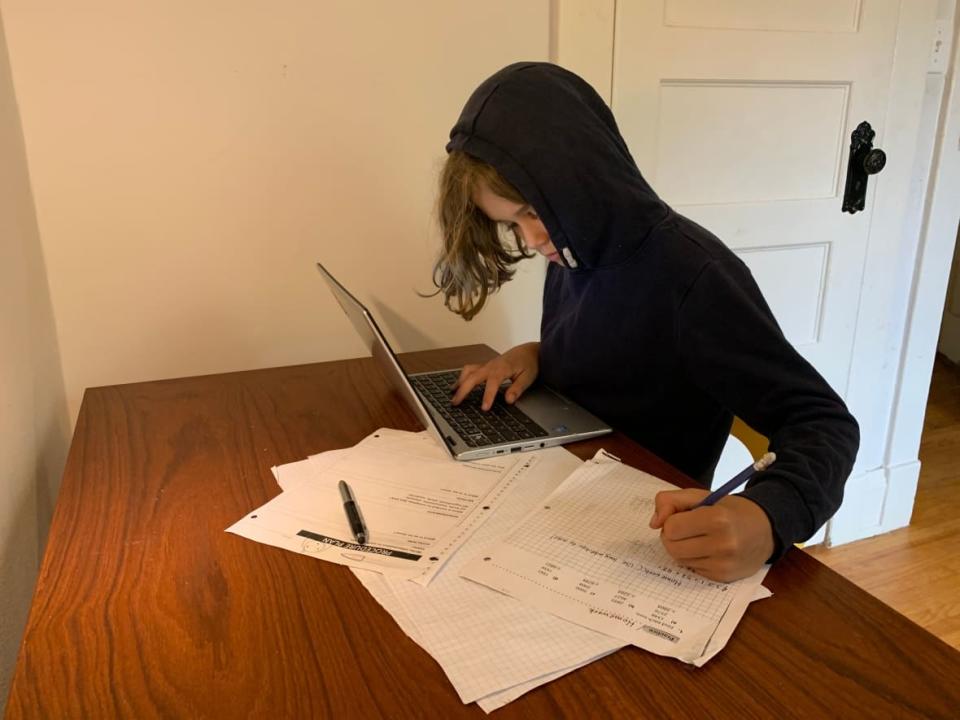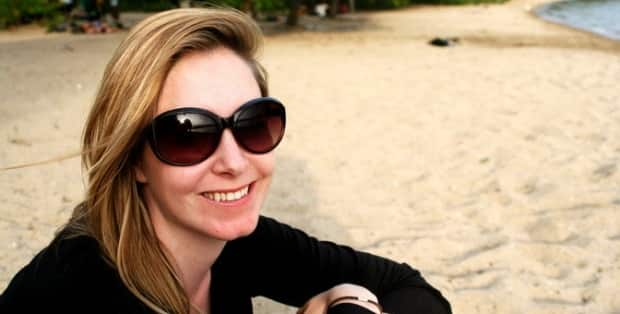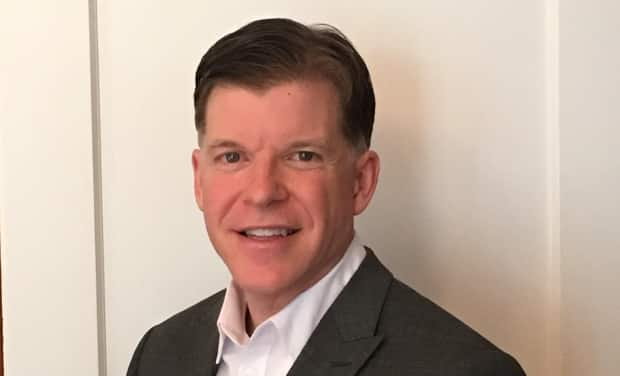Pandemic learning loss is real and kids need help to catch up, education experts say

Every summer, children forget some of what they learned during the previous school year, but now experts are warning that because of school closures and other disruptions during the COVID-19 pandemic, students will have a lot more lost learning to make up for.
Julia Davidson's seven-year-old son started kindergarten in Toronto during the pandemic and most of his schooling since then has been online, something he's struggled with even though she says he had a great teacher.
"I probably had the best-case scenario for online learning and I still think it was terrible," she said.
"I've got quite a bright kid, but who's highly active, and he's a hands-on learner. It was not the right mesh for him"
So Davidson hired a tutor.

She says she realizes how lucky she is to be able to do this, but she's also far from alone in getting extra help to deal with the fallout of virtual learning.
Vanessa Vakharia, the CEO and founder of the Math Guru, a math tutoring studio in Toronto, says she saw an increase in business of about 30 per cent in September compared to the same time last year.
She was flooded with emails from parents wanting to guarantee they'd get tutoring for their kids.
"Normally, we get the first round of eager people trying to set up their tutoring, but we normally don't get super busy until that first test when people are like, 'Uh oh! I am actually really behind,' whereas this year I find that people are really locking it in," she said.
"Learning has been so weird for the past almost two years that the truth is that kids are all at different levels right now," Vakharia added.
"I think also right now parents are very worried so it makes sense for them to want to get some one-on-one support."
Learning loss is real
Prachi Srivastava, a professor in education and global development with the faculty of education at Western University, says learning loss is expected.
"The concern in terms of actual learning-loss is real," she said, and it won't be felt in the same way by everyone.
"When you have real disruption, it is not going to be equitable, because those families that have other resources can always supplement," she said.

"Those children that are coming from lower income households, parents with less education, from more racialized backgrounds, from backgrounds that are marginalized in other ways, will experience relative to their peers even more learning loss."
It also depends on how much in-person schooling children received, and how far along they are in their school career.
"That student who is in Grade 8 or Grade 9 has had, relative to the amount of time they've been in school, less disruption, than a student ... entering Grade 4," Srivastava said.
"They've been disrupted since Grade 2. And those are really emerging years in terms of literacy and numeracy so what they can fall back on, in terms of their core skills, is relatively less stable."
She's concerned when things are back to normal and children under 12 are vaccinated, that governments will forget about learning loss and will not come up with an education recovery plan of some kind.
What does a recovery plan look like?
Srivastava is proposing a plan for helping Canadian children thrive academically after the pandemic, and she thinks it should be implemented as soon as possible.
The first step is "broad curricular reform" in every province, for every grade, for at least two years.
"You look at what parts of the curriculum from the last year or from when the pandemic really started, should be lengthened, what part of that curriculum from last year should be brought into the next year, and what part of the previous year's curriculum should be brought into this year," she said.
The next part of her proposed plan is to create programs that boost core skills like literacy and numeracy, alongside psychosocial programming for every child to help them improve coping and socialization skills.
And finally, Srivastava wants to target schools in areas that were most affected by COVID-19, plus groups of students who have experienced greater challenges during the pandemic, for example children of front-line workers or kids who have lost family members.
What can teachers do to help?
Individual teachers will be doing many of these things already, says Jay Wilson, the interim vice provost of teaching, learning and student Experience at the University of Saskatchewan.
"There are teachers that punch the clock, but most teachers really care about their students and want them to succeed. So they would work with a specialist to come up with a learning plan," he said.

"You want to see what your student is capable of doing, and then what kind of plan allows them to catch up without flattening them with … 'Here's your pile of stuff to do every night. Good luck, enjoy your childhood'"
He says he recognizes that teachers today are often strapped for time, but some will stay in their classroom during lunch and offer students extra help.
"For the most part the kids are going to be okay. They've learned a lot, just like us. We're still not taking deep cleansing breaths yet but I hope in the future we'll be able to, but we still need to keep an eye on the students that would struggle regardless of whether or not we're in a pandemic," said Wilson.
What can parents do?
The good news for parents, according to tutor Vanessa Vakharia, is that students in the earlier grades have time to catch up, because there is so much repetition, particularly in math.
"Math is cumulative. Pandemic or no pandemic, we've always had this idea of learning gaps in math preventing kids from moving forward, and I think what the exciting and hopeful part about it is ... that normally learning gaps can be filled by external support." she said.
In her experience, just an hour a week can make a big difference, and it doesn't have to come from a traditional tutor. She says parents could hire a high school student, or split the cost of a tutor with another family.
They might even consider asking another student in the class for help outside of school.
"Seriously, if your kid has a smart friend, that can be your ticket," she said.
As for Julia Davidson, she's hoping with the return to in-class learning and the aid of a tutor, her son gains confidence and the same love of learning that she remembers having as a kid.
"I just think the worst thing to happen in elementary school is to feel like you're not good at school. It just sets the tone for everything else, and I loved school. And so I think that's why I really just want that for my kids," Davidson said.
"I don't really care about the output as much as really loving it, because then I think you are going to find your place."

